63% of the world’s 175 largest economic entities are corporations. Once we let that fact sink in, it becomes evident that any struggle for economic and gender justice is inextricably linked to understanding and contending with the systemic implications underlying unrestrained corporate power.
Over 35 participants from diverse regions and movements gathered in Sao Paulo, Brazil for the cross movement dialogue “Challenging corporate power: Struggles for women’s rights, economic and gender justice” from 29 February to 2 March 2016. The three day dialogue, co-convened by AWID and the Solidarity Center with the facilitation of Just Associates (JASS), aimed to learn from the powerful stories of women and movements and to strengthen cross-movement solidarity across them.
Participants came from trade unions, informal and domestic women workers associations, Indigenous, Black, LGBTQI and feminist movements, amongst others.
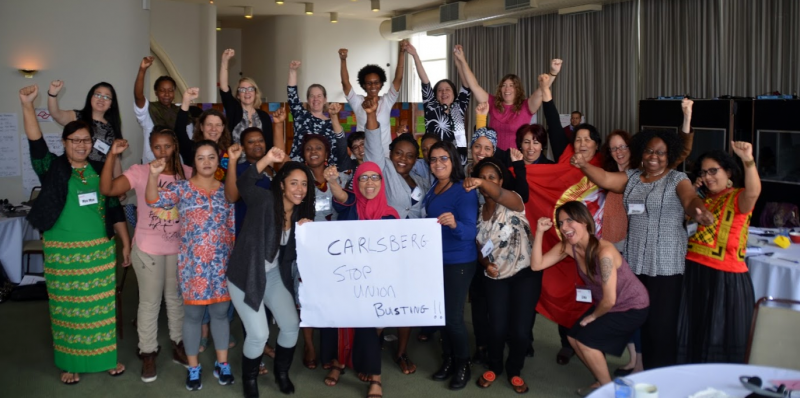
First step: Understanding the scale and depth of corporate power
Pulling from participant’s own experiences followed by a presentation of key facts and figures1 around corporate power globally, the context was set.
◾️ 63% of the top 175 global economic entities are transnational corporations. 37% are countries2.
◾️ The revenues of the three largest corporations (Royal Dutch Shell, Exxon Mobil and Wal-Mart) are higher than the GDP of 110 countries, 55% of nation states2.
The impacts of corporate power do not happen in an abstract globalized world but are experienced at the very personal level, in the communities in which we live and work. Participants shared some of the key elements in their contexts:
- flexibilization of labor
- privatization of essential services
- limited access to healthcare and medication
- appropriation of common land and natural resources
- environmental disasters and exploitation of workforce
- appropriation of ancestral knowledge
- neo-colonialism
The experiences varied across regions, intersecting with class, race and post-colonial contexts in distinct ways.
Despite the diversity of case studies, there are common threads and backlash that can be traced to a global economic system which allows the free flow of capital with minimal regulatory control, with dire consequences to the environment, decent work and livelihoods.
Second step: Building strategies
We offer here a snapshot of some of the cases shared at the meeting and the diverse strategies of resistance. You can learn more from each by following the links and support some of the ongoing campaigns.
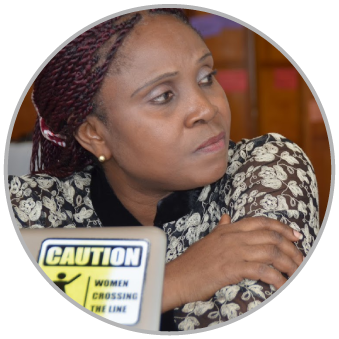
1. In the Niger Delta: Demonstrations of women for their rights to negociate
Chevron’s exploration and exploitation activities including oil spills and gas flaring, have resulted in pollution of rivers, streams and creeks.
This has lead to further economic marginalization of local people -predominantly women farmers and fisher-folks- while giving them virtually no control over their own livelihood, land or resources.
Emem Okon, executive director of Kebetkache Women Development & Resource Centre of Nigeria shared the story of how women were able to occupy Chevron’s oil platforms for 10 days until their demands were met. Similar sit ins and boycotts by women affected by Chevron’s policies in the region forced the company to the negotiating table with communities. Despite their efforts, attempts were made to exclude the women themselves from the negotiations.
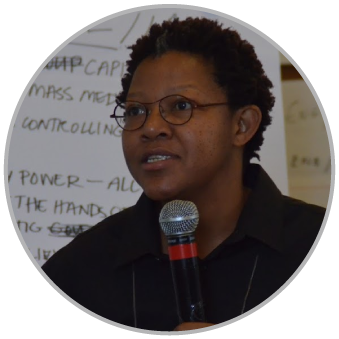
2. In South Africa: Taking pharmaceutical companies to court
The Treatment Action Campaign (TAC) struggle for access to anti-retroviral treatment (ARV) was led by people living with HIV and AIDS.
Reinforcing the human rights principle of non-discrimination, it also highlighted that the HIV and AIDS pandemic was hitting the most discriminated and marginalized groups – Black women and men living in townships and rural areas, and Black and Coloured LGBTQI persons. Phumi Mtetwa, former activist of the campaign recalls how TAC took 2 of the largest pharmaceutical companies, GlaxoSmithKline and Boehringer Ingelheim, to court for blocking the sale of more affordable generic ARV in South Africa.
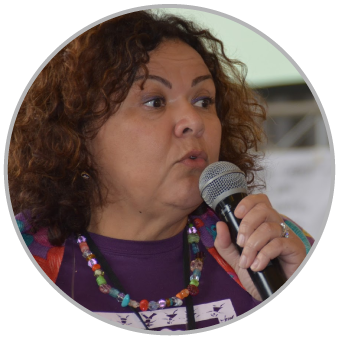
3. In the Brazilian state of Minas Gerais: Mining union confronts corporate power
The collapse of a mining dam in November 2015 was one of the biggest environmental disasters in the country’s history.
The dam failed at an open-cast mine operated by Samarco, a joint venture between mining giants BHP Billiton and Vale burying communities in mud and leaving a river polluted by mining waste.
Junéia Batista, National Secretary of the largest Brazilian trade union, the Central Única dos Trabalhadores (CUT) shared the multiple strategies and reactions, including an on-site visit by CUT members to the village of Mariana, the most affected by the failure of the dam. Coordination with other social movements such as the Movement of People Affected by Dams (MAB) was essential to confront economic power of these corporations including through legal action presented at the ILO against the companies involved.
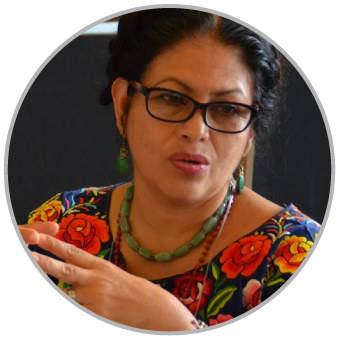
4. In Mexico’s Tehuantepec Isthmus in the region of Oaxaca: Indigenous communities fight for their land
Multinational companies like Mareña Renovables, Gas Natural Fenosa, Demex and Iberdrola are operating wind farms in lands in common use by Indigenous communities.
The projects were reportedly initiated without prior consultation with the ikjoots and binnizá, the peoples native to the area. Lucila Bettina Cruz Velázquez is a Mexican woman human rights defender and member of the Assembly of the Indigenous Peoples of the Tehuantepec Isthmus in Defense of Land and Territory, who has been denouncing this massive land-grabbing by corporations.
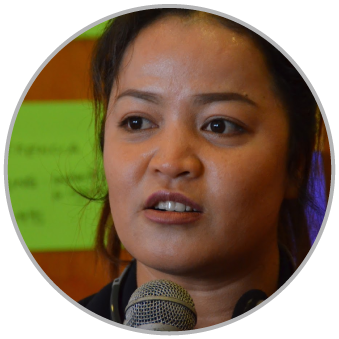
5. In Cambodia: Women's struggle for better working conditions
Angkor beer promotion women are on strike after transnational brewery giant Carlsberg fired 12 members of the IUF- affiliated Cambodian Food and Service Workers' Federation (CFSWF) fighting the company's attempt to impose short-term employment contracts and late working hours.
Ou Tep Phallin, from the CFSWF explained how the beer promotion women are employed by Carlsberg to market and serve Angkor beer at restaurants, where they compete with promoters from other breweries working in the same restaurants. After 2 years on the job, workers have a legal right to a permanent contract, which gives paid maternity leave and other benefits. Carlsberg/Cambrew refuse to comply with the law and continue to undermine the independent union.
Sign the petition to support worker’s struggle
Stay tuned for more case studies and upcoming video interviews and reflections from the meeting.
1 Presentation developed by Rachel Moussié especially for this meeting and is available in Spanish, Portuguese, French and English. 2 Comparison between World Bank GDP estimations in 2011 and Forbes Magazine’s data
